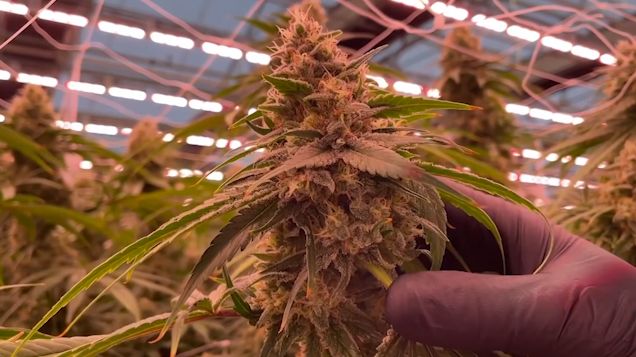President Donald Trump is considering the reclassification of cannabis. This would better align the federal government with states that are already allowing the drug.
What You Need To Know
- Cannabis is currently classified as a Schedule I drug, which makes growing, selling and possessing the drug a federal crime
- The White House is now reviewing the possibility of reclassifying marijuana to a Schedule III drug
- Advocates say a reclassification would have wide-ranging impacts on future research and the growing industry
For more than four years, adult-use, or recreational marijuana, has been legal in New York. That came with regulation and taxation, which also green-lighted an industry across the state. People in that industry believe a change on the federal level would close some gaps with the current system.
“We have challenges right now,” said Christine Richardson, the owner of Royal Flower Cannabis Dispensary in Albany. “People are struggling.”
Richardson believes New York is at a standstill with marijuana.
“I think dispensaries are going to fall short if we don’t do something, and change it federally,” she said.
Which may become reality as the Trump administration is mulling whether to reclassify cannabis from a Schedule I drug, like heroin, to a less dangerous Schedule III drug.
“We’re looking at it,” the president said earlier this month at The White House. “I’ve heard great things having to do with medical and I’ve heard bad things having to do with just about everything else.”
As a Schedule I drug, possessing, growing and selling marijuana is a federal crime. Licensed business owners selling marijuana, where its legal, don’t have access to federal income tax deductions.
“We believe it opens doors to research,” said Dr. June Chin of the state’s Office of Cannabis Management. “It also reduces financial burdens on cannabis businesses; it promotes public health initiatives.”
While reclassifying cannabis would not make recreational use legal nationwide, Richardson believes it charts the course for success as the industry takes shape.
“It’s going to help our communities, people can get insurance,” she said. “We’re no longer set against the rules of each state by state and how they can control our tax revenue.”
Meanwhile, Smart Approaches to Marijuana, a nonpartisan group of physicians, prevention workers and others opposed to the legalization of marijuana, call the potential reclassification a “public safety and public health nightmare.”
There is no clear indication as to when a decision could come from the White House.
